This course will survey representations of race on film from the late 19th century up until the 1960s. A most compelling component of the course will focus on how underrepresented groups like African Americans represented themselves in “race films”: low budget independent productions with mainly black casts made specifically for segregated black audiences. Professor: Ken Eisenstein. Screenings are free and open to the public.
Friday, August 29 at 2pm
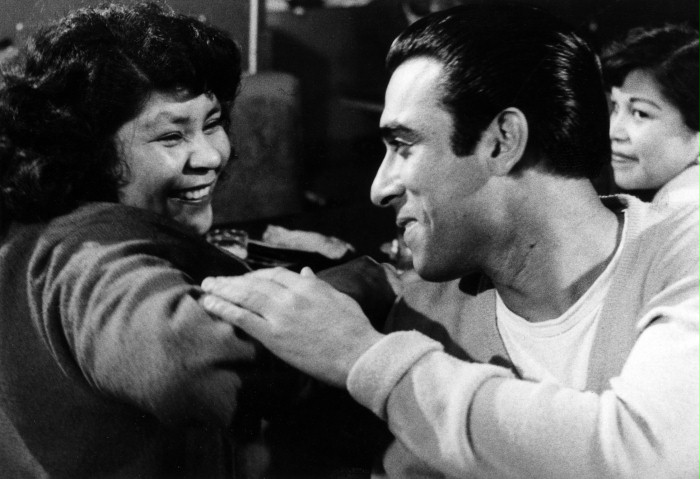
The Exiles
Directed by Kent MacKenzie (U.S. 1961) 72 min. With Homer Nish, Tom Reynolds, Yvonne Williams.
A chronicle of one night in the lives of young Native Americans living in the Bunker Hill district of Los Angeles, The Exiles follows a group of transplants from Southwest reservations as they flirt, drink, dream, fight and dance. Selected for the Library of Congress’ National Film Registry in 2009.
Friday, September 5 at 2pm
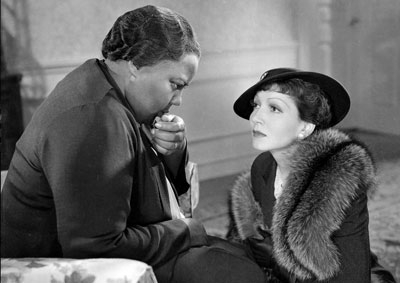
Imitation of Life
Directed by John M. Stahl (U.S. 1934) 111 min. DCP. With Claudette Colbert, Ned Sparks, Louise Beavers.
Two widowed mothers – one white (Colbert), one black (Beavers) – decide to go into business together. In an era reluctant to address racially sensitive issues, Stahl affectingly portrays a woman’s complicated relationship with her light-skinned daughter–who is desperately trying to pass for white.
Friday, September 12 at 2pm
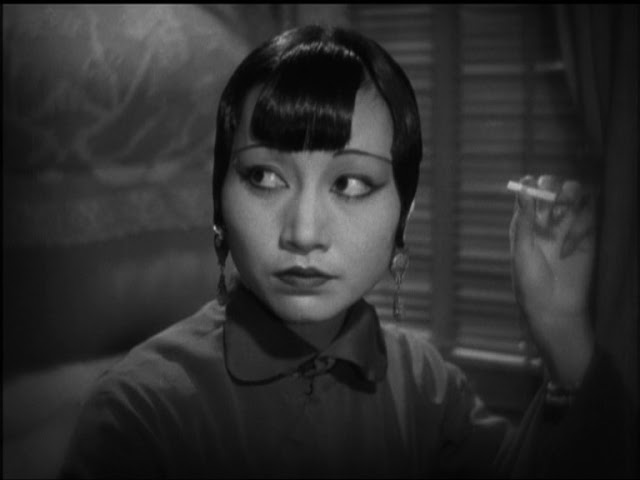
Shanghai Express
Directed by Josef von Sternberg (U.S.1932) 82 min. 35mm. With Marlene Dietrich, Clive Brook, Anna May Wong.
Political intrigue and sexual tension simmer in Sternberg’s fantasy of China, where a train crossing the war-torn country carries Shanghai Lily (Dietrich), fellow courtesan Hui Fei (Wong, the first Chinese American movie star) and Shanghai Lily’s old flame (Brook).
TOP OF PAGE
Friday, September 19 at 2pm
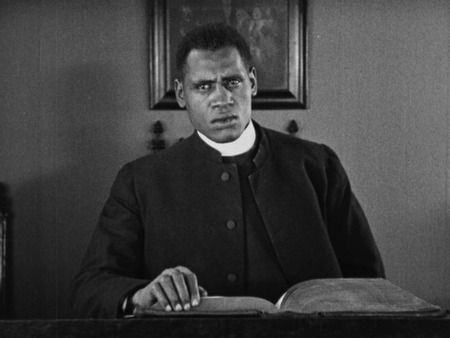
Body and Soul
Directed by Oscar Micheaux (U.S. 1925) 102 min. 35mm. With Paul Robeson, Mercedes Gilbert, Julia Theresa Russell. Silent with Christian Humcke (BU ’15) Performing Live Musical Accompaniment.
One of Micheaux’s masterpieces features the screen debut of legendary actor and singer Paul Robeson playing two roles, one of them a hard-drinking thief and womanizer who poses as a pastor in a small Southern town and preys upon a young member of his congregation.
TOP OF PAGE
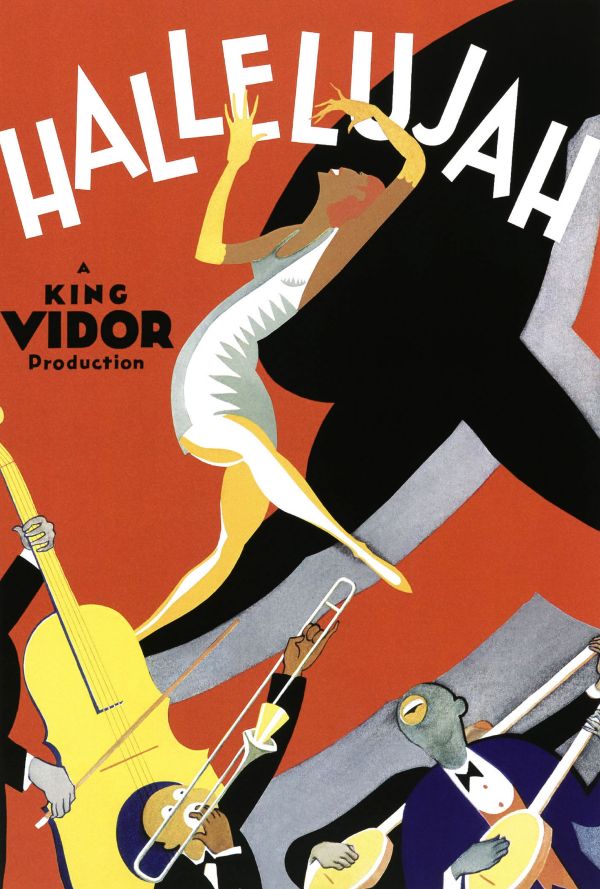
Friday, September 26 at 2pm
Hallelujah
Directed by King Vidor (U.S. 1929) 109 min. 35mm. With Daniel L. Haynes, Nina Mae McKinney, William E. Fountaine.
This MGM musical was the first of its kind for a major Hollywood studio: shot on location in the South with an all-black cast. Its tale of a minister on the revival circuit, whose troubled past comes back to haunt him, may invite criticism for its stereotypes, but it was a labor of love for Vidor, who worked without salary and hired African-American advisers with his own money.
Friday, October 3 at 2pm
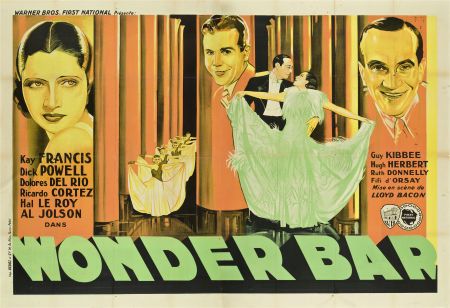
Wonder Bar – Preservation Print!
Directed by Lloyd Bacon (U.S. 1934) 84 min. 35mm. With Al Jolson, Kay Francis, Dolores Del Río.
A pre-Code escapist musical set among denizens of a Parisian night club, Wonder Bar features Busby Berkeley’s “Goin’ to Heaven on a Mule” production number (with Jolson in blackface) and the shimmering Mexican actress and Hollywood star Dolores Del Río. Murder, romance and racial stereotypes abound. Preserved by Library of Congress.

Friday, October 10 at 2pm
Ten Minutes to Live
Directed by Oscar Micheaux (U.S. 1932) 58 min. With Lawrence Chenault, A.B. DeComathiere, Laura Bowman
Followed by
Swing!
Directed by Oscar Micheaux (U.S. 1938) 69 min. With Cora Green, Larry Seymour, Hazel Diaz
Swing! is Micheaux’s take on the backstage musical, its 42nd Street plot concerning New York producers of black entertainment trying to get their revue on Broadway. Ten Minutes to Live’s milieu isa Harlem nightclub, where a movie producer attempts to seduce a singer with the promise of a starring role.
TOP OF PAGE
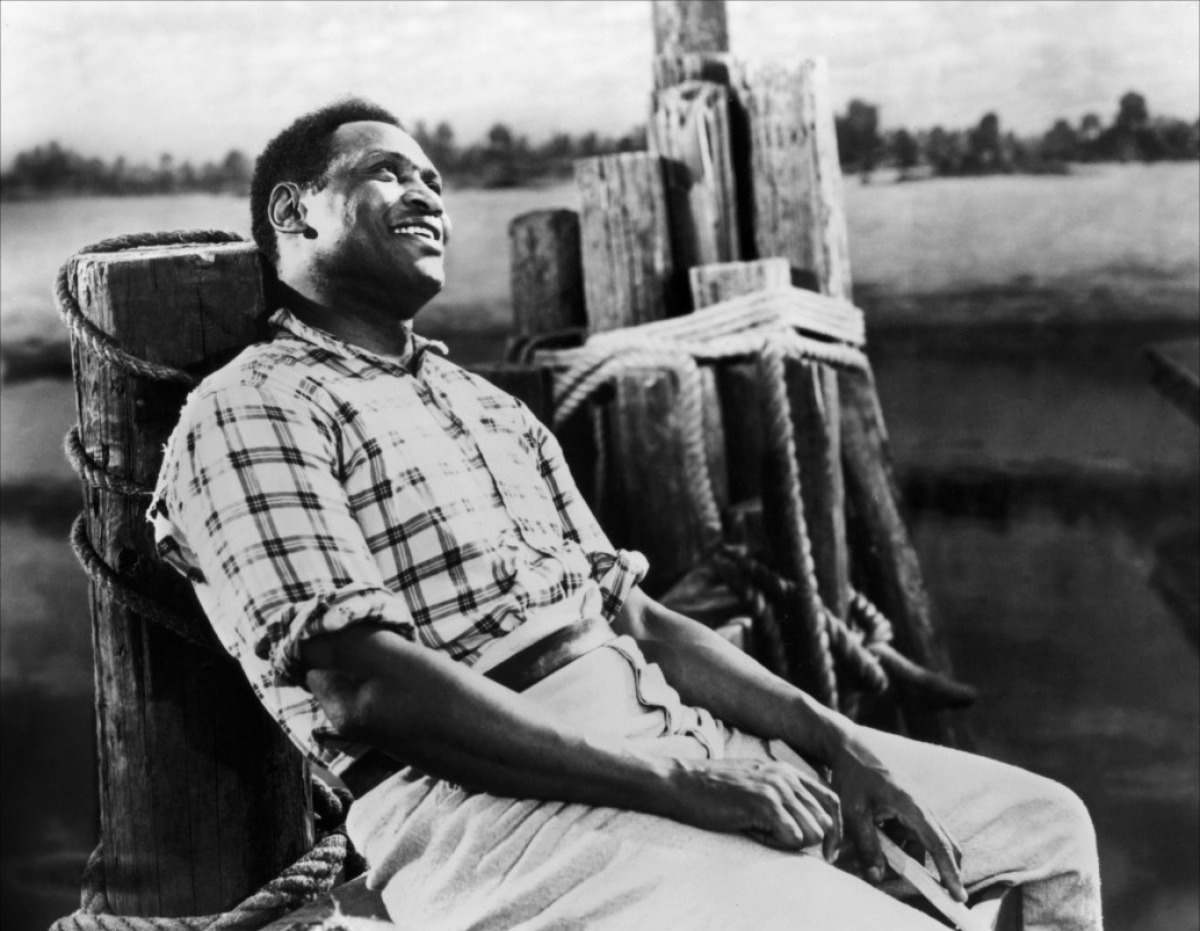
Friday, October 17 at 2pm
Show Boat
Directed by James Whale (U.S. 1936) 113 min. 35mm. With Irene Dunne, Allan Jones, Paul Robeson.
This definitive film version of the Kern/Hammerstein musical includes cast members from the original Broadway production and contains some of Robeson’s greatest film work. Whale’s direction foregrounds the undercurrents of racism, miscegenation and human weakness among a performing troupe in the South around the turn of the twentieth century.
Friday, October 24 at 2pm
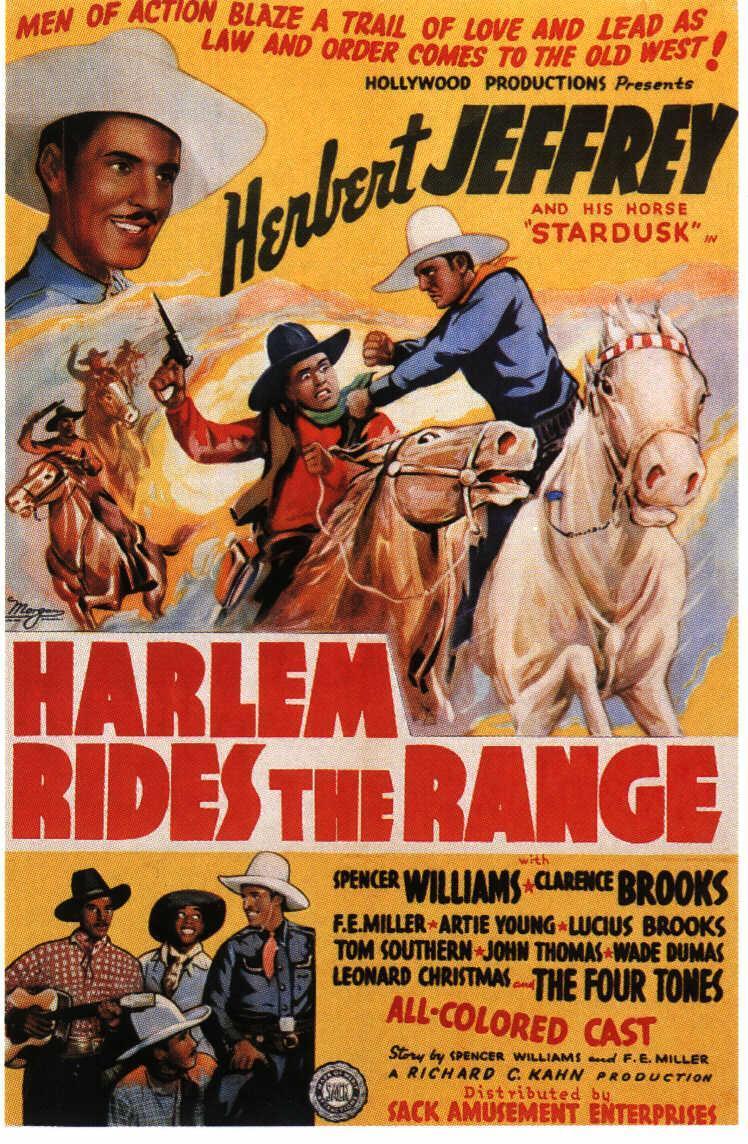
Harlem Rides the Range
Directed by Richard Kahn (U.S. 1939) 56 min. With Herb Jeffries, Lucius Brooks, F.E. Miller.
Followed by
Son of Ingagi
Directed by Richard Kahn (U.S. 1940) 70 min. With Zack Williams, Spencer Williams.
Two genre pictures, a western and a sci-fi/horror film, from the race film circuit. One stars cabaret singer Herb Jeffries, and both feature Spencer Williams (who also wrote both films). Williams, most famous for playing Andy on television’s Amos ‘n’ Andy, would go on to direct his own films, two of which will be featured in this series in November.
TOP OF PAGE
Friday, October 31 at 2pm
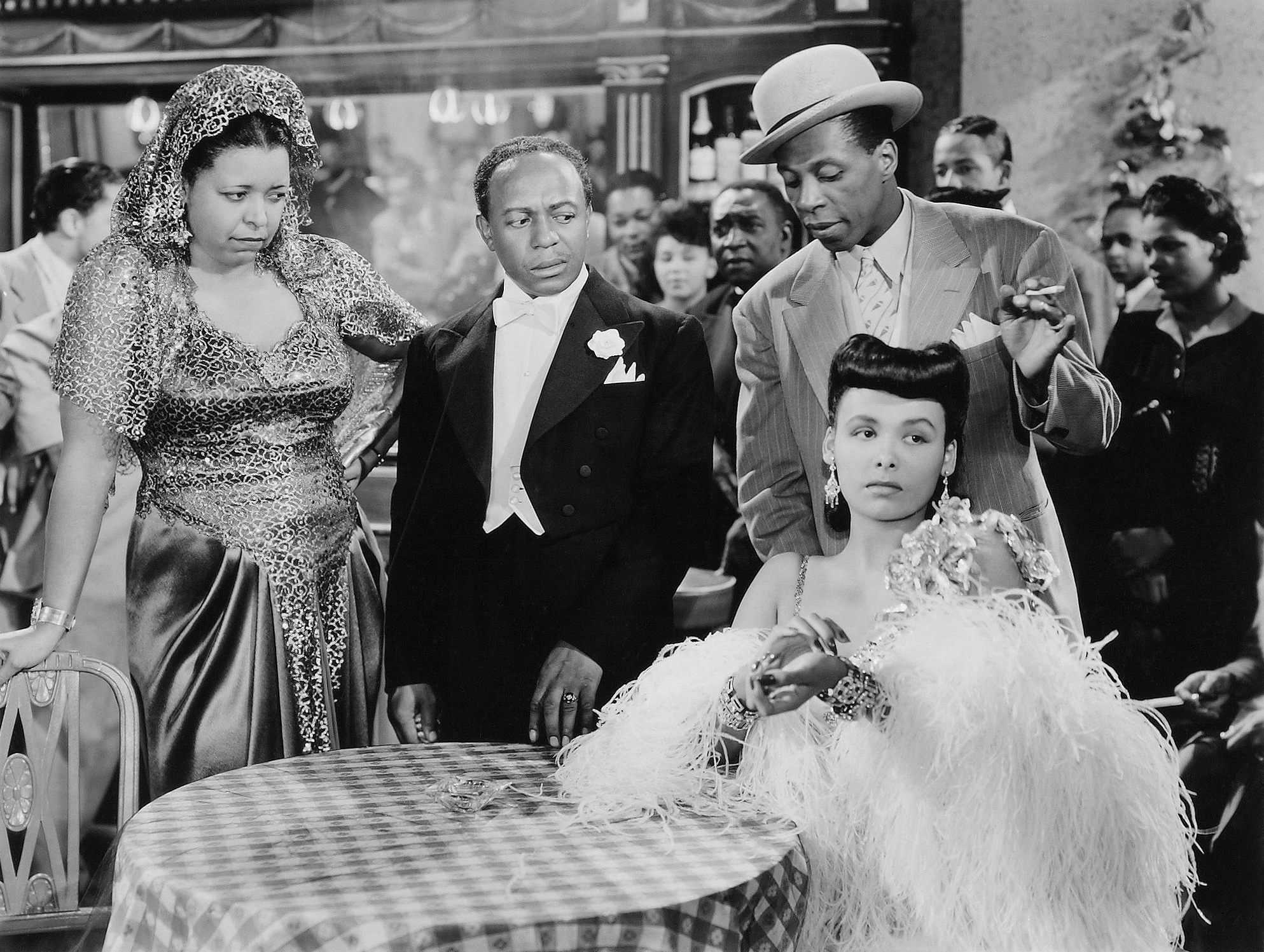
Cabin in the Sky
Directed by Vincente Minnelli (U.S. 1943) 98 min. 35mm. With Ethel Waters, Eddie Anderson, Lena Horne, Louis Armstrong.
One of only six all-black musicals produced in the Hollywood studio era, Cabin in the Sky was Minnelli’s big break. With reservations about the script’s racial stereotypes, the director infused the fantastic tale with imagination and exuberance, making it a showcase for outstanding performances by some of the greatest black actors and musicians of the 1940s.
Friday, November 7 at 2pm
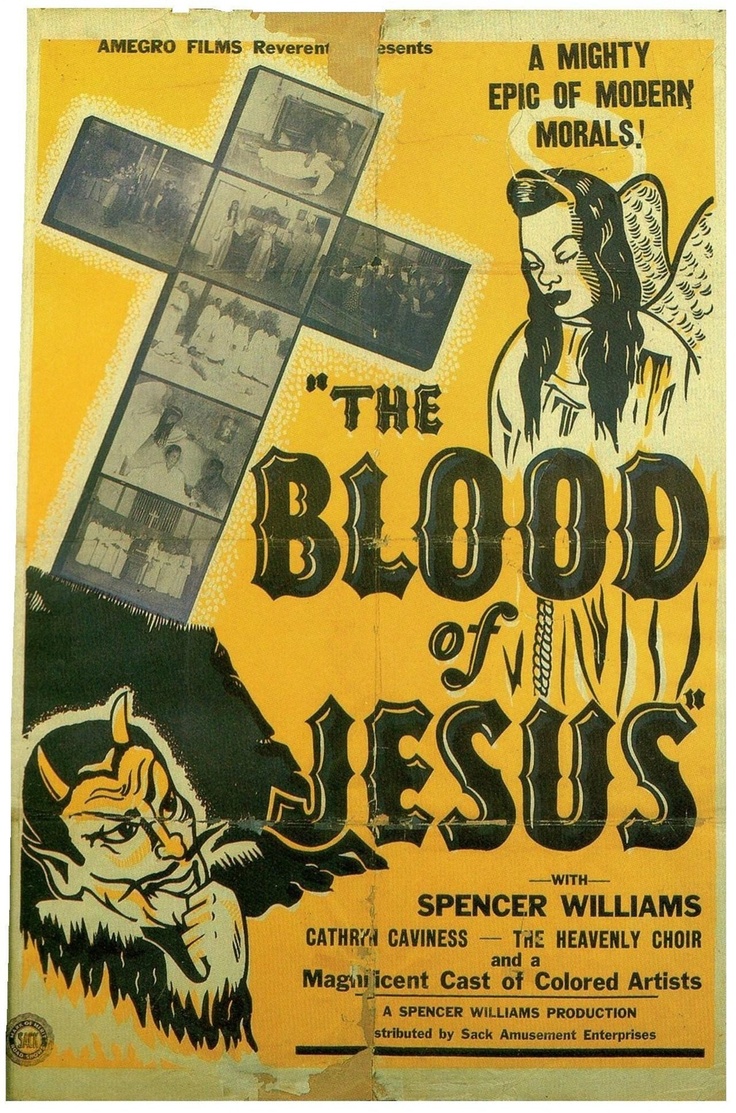
The Blood of Jesus
Spencer Williams (U.S. 1941) 57 min. With Spencer Williams, Cathryn Caviness, Juanita Riley.
Named by the Library of Congress to the National Film Registry in 1991, this salvation drama was shot in Texas on a shoestring budget, and “is probably the most popular movie made for African American audiences before World War II… It is the first feature by writer-director Spencer Williams, later a star of TV’s Amos ‘n’ Andy, whose films have been vastly underappreciated despite his unique ability to capture Black religious and cultural practices while experimenting with film style” (Jacqueline Stewart, film historian and National Film Preservation Foundation Board Member).
Followed By
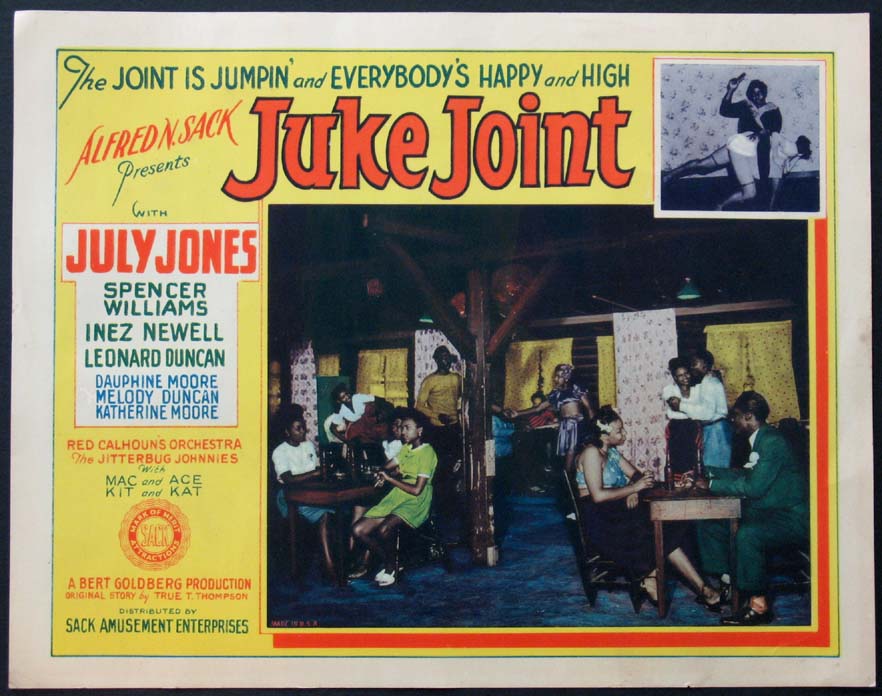
Juke Joint
Spencer Williams (U.S. 1947) 68 min. 35mm. With Spencer Williams, July Jones, Inez Newell.
Williams’ last film as a director is a con-artist tale; he disappeared from the industry for four years before taking the role of Andy on CBS’s short-lived Amos n’ Andy series. Preserved by the Library of Congress.
Friday, November 14 at 2pm
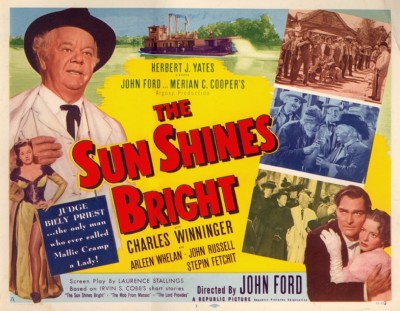
The Sun Shines Bright
John Ford (U.S. 1953) 90 min. 35mm. With Charles Winniger, Arleen Whelan, Dorothy Jordan, Stepin Fetchit.
Ford’s portrayal of a white man’s intercession for a black teenager accused of raping a white woman is set in a less than idyllic South, in a small Kentucky town in the early 1900s. The film’s treatment of moral courage, communal penance and lynch mob terrorism is refracted through the director’s concerns about a post-war America on the cusp of the Brown v. Board of Education decision and the Civil Rights Movement. For years John Ford claimed The Sun Shines Bright was his best picture. 35mm restored print courtesy of the UCLA Film & Television Archive. Preservation funding provided by The Film Foundation and the AFI/NEA Preservation Grants Program.
Friday, November 21 at 2pm
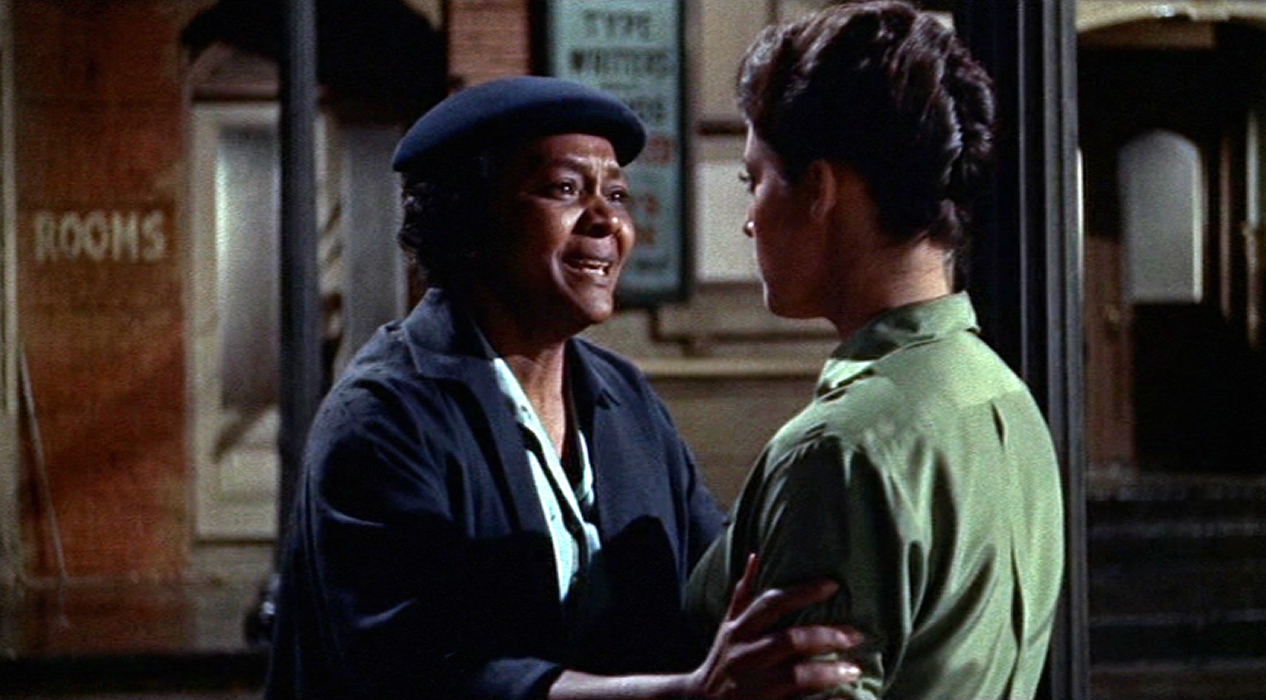
Imitation of Life
Douglas Sirk (U.S. 1959) 125 min. 35mm. With Lana Turner, Sandra Dee, Susan Kohner, Juanita Moore.
Sirk’s deeply moving and deeply American melodrama revisits Fannie Hurst’s popular 1933 novel (first adapted for film by John Stahl in 1934). The story follows an aspiring actress (Turner), her domestic servant and a respected leader of her black community (Moore) and their daughters, as they struggle to survive and find their place in New York City. Sirk’s pessimistic yet profoundly sympathetic look at American class and race relations laments the causes and repercussions of a young woman’s desperate attempts to pass for white.
Friday, December 5 at 2pm
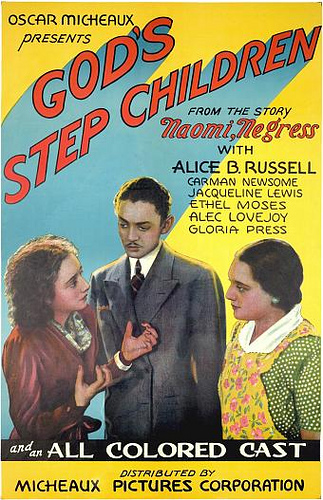
God’s Step Children
Oscar Micheaux (U.S. 1938) 105 min. With Jacqueline Lewis, Ethel Moses, Alice B. Russell.
A light-skinned woman rebels against her foster parents, bribes her way into the local white school, and–years later–finds herself living between two worlds and belonging to neither. “For viewers who celebrate or can go beyond [Micheaux’s] unorthodox, insouciant and improvisatory style; who support his ideology (or at least find it reasonable); and who respect his integrity and his character, the film may be his best. It certainly is one of his most fascinating” (J. Ronald Green, With a Crooked Stick: The Films of Oscar Micheaux).